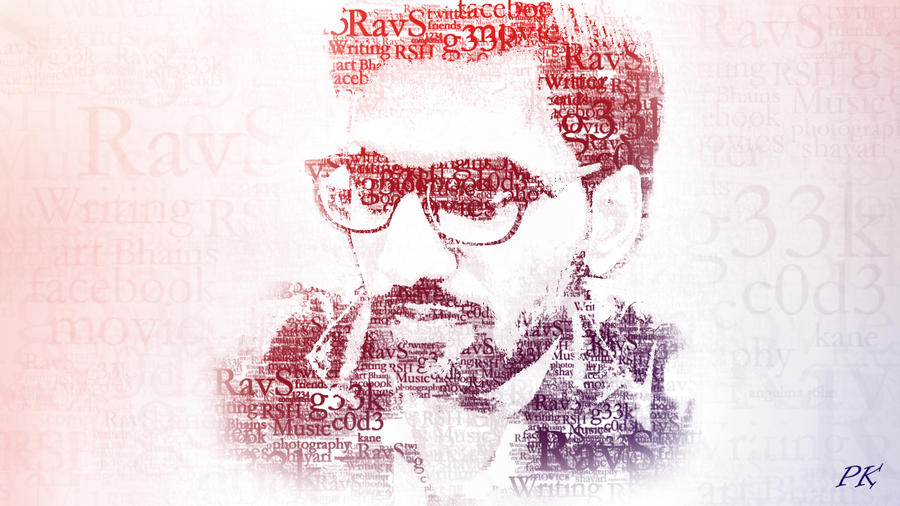 Welcome to the era of digital storytelling! The world of books has transformed from paper to more accessible and convenient digital versions – ebooks. With the increasing demand for ebooks, more and more people are venturing into the world of self-publishing. However, while it may seem easy to write and self-publish your ebook, there are common mistakes that most first-time writers often make.
Welcome to the era of digital storytelling! The world of books has transformed from paper to more accessible and convenient digital versions – ebooks. With the increasing demand for ebooks, more and more people are venturing into the world of self-publishing. However, while it may seem easy to write and self-publish your ebook, there are common mistakes that most first-time writers often make.
These mistakes can be costly and detrimental to your book’s success. We’ve compiled a comprehensive list of the top 18 most common ebook writing mistakes you should avoid. So, grab your notepad, settle down with a cup of coffee, and let’s dive into the world of errors to avoid as an aspiring writer!
First Impression Is The Last Impression
As the saying goes, “You never get a second chance to make a first impression.” And when it comes to ebooks, the cover is that crucial first impression. In a world where our attention span is shorter than ever, a lackluster ebook cover can be the kiss of death for a potential reader.
Think about it – when you’re browsing through an online bookstore, what catches your eye? Is it the dull, barely visible covers with no clear message? Or is it the vibrant and enticing covers that practically jump off the screen and call out to you?
As an author, it’s essential to keep in mind that your target audience will most likely view your ebook cover as a thumbnail on a webpage. So, it’s crucial to create a cover that is simple, attractive, and clutter-free. But beyond that, your title must be eye-catching and convey the message of what problems your book is meant to solve.
Boring The Readers
As an author, it’s natural to have certain themes, styles, and ideas that you’re passionate about. However, when it comes to writing ebooks, repetition in content is a serious mistake that few can afford to make.
Think about it – your readers are looking for something new and unique, something that will captivate their attention and leave a lasting impression. If they feel like they’ve already read the same thing from you before, they’re likely to move on to another author who can offer them fresh perspectives and exciting new ideas.
So, while it’s important to stay true to your brand style and editorial guidelines, it’s equally important to get creative with your content. Every ebook you write should be unique in some way – whether it’s through your writing style, tone, themes, or even design elements such as imagery and logos.
A Picture’s Worth A Thousand Words
When it comes to writing ebooks, words are undoubtedly the backbone of your content. However, relying solely on text can make your content feel dull and unengaging for your readers. That’s where visuals come in – they provide an opportunity to break up the monotony of your text, add variety, and even enhance your message.
Simply listing facts and figures can be a snooze fest for even the most dedicated readers. But by using charts, diagrams, and other visual aids, you can convey your message in a way that is both clearer and more engaging. In fact, studies have shown that visuals can increase comprehension by up to 400%!
Don’t be afraid to get creative with your visuals – use them to communicate complex information in a way that is easy to understand and remember. Graphics such as infographics, tables, and graphs can be used to compare data points, highlight trends, and make your arguments more compelling.
Hit Your Mark with a Clear Plan
Starting to write an ebook can be an exciting time, but resist the urge to jump straight in without a plan. Planning your ebook before you start writing is essential to ensure you produce quality content that fulfills your goals. Once you have received survey results or identified a specific topic to write about, it’s time to carefully plan and layout your ebook’s structure.
Creating an outline with clear chapter titles and a roadmap for each section will help you stay on track and focused on your goal. It will also ensure that your content remains organized, coherent, and easy to follow, preventing needless repetition or exploring irrelevant tangents.
When you have a clear plan in place, writing will become less complicated and more enjoyable. You will have the freedom to experiment with your writing style and let your creative juices flow without worrying about straying from your content objectives.
Reach Your Audience, No Matter How They’re Reading
In today’s digital age, it’s essential to ensure that your ebook is easily accessible and compatible with all devices – from desktop computers to mobile phones. Readers want to be able to access your content anytime, anywhere, and on any device without any hassle or compatibility issues.
When designing your ebook, it’s crucial to keep in mind the ease with which the text can be reproduced and viewed. You never know who else might want to read your content or share it with their team members. By making sure your ebook is compatible with all devices, you can reach a wider audience and maximize your content’s impact.
To ensure compatibility across platforms, consider using universal file formats such as PDF or EPUB. These formats can be easily accessed and viewed on a variety of devices, making it easy for readers to consume your content regardless of their device’s specifications.
Smaller Chunks are Better
We’ve all been there. You land on a page, and your heart sinks as you’re greeted with a wall of text that seems daunting to navigate. Endless text can be a turn-off for even the most dedicated readers, and it’s important to remember that less is often more, especially when it comes to written content.
To keep your readers engaged and interested, break up your text into smaller, more manageable chunks, and try to keep your concepts brief and to the point. Whitespace, graphics, and bullet points are all valuable tools for offering visual relief and helping your readers process information more efficiently.
When it comes to web content writing, this advice is especially crucial. Online readers are notoriously skimmable, so it’s important to structure your content in a way that is easily digestible and visually appealing. By using strategies such as subheadings, lists, and short paragraphs, you can help your readers quickly locate the information they need and keep them engaged for longer.
The Pitfalls of Copying Your Competitors
As an ebook writer, it can be tempting to look to your competitors for inspiration and direction. After all, they must be doing something right if they’re successful, right? Unfortunately, this kind of thinking can lead you down a dangerous path, one that can ultimately undermine your credibility and harm your reputation.
Copying your competitors’ strategies may seem like a quick and easy shortcut to success, but it can actually have the opposite effect. Not only will you be at risk of losing the trust of your readers, but you’ll also be wasting valuable time, resources, and energy on a strategy that may not even work for you.
In a highly competitive digital marketplace, it’s more important than ever to strive for originality and authenticity in your content. Your readers want to hear your unique perspective, voice, and ideas – not a rehash of what’s already out there.
Stop Wandering Aimlessly
Writing an ebook without an outline is like taking a road trip without a map – you might get to your destination eventually, but you’ll probably waste a lot of time and energy along the way. That’s why creating an outline is a crucial step in the ebook writing process.
Starting with a table of contents can help guide your writing and keep your ideas focused and organized. As you progress through your writing, you may find that your initial ideas evolve and change, but having a solid outline to fall back on will ensure that you remain focused and avoid directionless writing.
Remember that your ebook should provide a solution to a specific problem, so it’s important to keep your main goal in mind throughout the writing process. By writing down your purpose and organizing your chapters and subdivisions in a systematic and orderly manner, you can ensure that your content remains relevant, useful, and engaging for your readers.
Make Time For Your Ebook
Working on an ebook project can be both exciting and time-consuming. However, without proper planning and time management, it’s easy to feel overwhelmed and frustrated.
One of the most significant mistakes ebook writers can make is working without a schedule. Waiting to work on your project when you ‘feel like it’ can result in constant delays, missed deadlines, and, ultimately, failure to meet your own expectations.
To avoid this, it’s crucial to create a realistic schedule that breaks down the elements of your project into specific tasks with clear completion dates. Your schedule should consider your abilities and the amount of time you can spare to work on your ebook.
End Well, Begin Well
Writing the introduction to an ebook may seem like a logical place to start, but it’s not always the best approach. In fact, writing the introduction at the beginning of your project can be a recipe for frustration and disappointment.
One of the main reasons why it’s not worth it to write an introduction first is that you can’t predict exactly what will end up in your ebook. Even with a solid outline, there’s a good chance that some topics will be omitted or chapters will be extended. Additionally, new ideas may emerge during the writing process, or your initial objectives may shift with more in-depth research.
If you do decide to write the introduction first, there’s a good chance that you’ll need to rewrite it once your ebook is complete, which can be a frustrating and time-consuming process. Instead, it’s best to write your introduction toward the end of your project once you have a clear understanding of your ebook’s content and structure.
Creative Flow vs. Editorial Focus
Writing an ebook can be an intensive process, and it’s natural to want to get everything perfect on the first go. However, writing and editing at the same time can be detrimental to your progress and ultimately harm the quality of your content.
Constantly correcting and editing as you write can disrupt your rhythm and kill your creative momentum. Every time you stop to fix a small mistake, you lose concentration and risk losing focus on your topic altogether. This is why it’s essential to separate the creative writing process from the editing process.
By taking a break between writing and editing, you’ll be able to approach your work with a fresh set of eyes and a more objective perspective. You’ll also be able to evaluate the structure of your ebook as a whole rather than focusing on individual sentences or paragraphs.
Empower Your Readers
As an ebook writer, it’s essential to prioritize the needs and interests of your readers. While it may be tempting to focus on displaying new technologies or processes, you must also explain the value of these concepts and how they can benefit your readers.
Incorporating helpful information and practical advice in your ebook is essential to add value for your readers. Not only must you explain how and why these concepts will save time and money, but you should also provide proof to substantiate your claims.
By providing real-world examples and success stories, you can show your readers how implementing your advice can lead to a successful outcome. Additionally, optimizing workflows, enhancing employee satisfaction, improving information security, and boosting productivity are all essential selling points to emphasize.
Keeping It Real
As an ebook writer, it’s important to remain objective and fair when evaluating market players. It’s essential to resist the temptation to oversell yourself or downplay your competitors.
When potential buyers are considering high-value purchases, they often evaluate several options before making a decision. Therefore, it’s essential to provide a fair and unbiased evaluation of your product compared to those of your competitors.
Be upfront about how your product stands out and addresses customers’ pain points, but avoid being overly salesy. Your readers will appreciate an honest and straightforward evaluation.
Ebooks are a powerful tool for attracting and nurturing potential and existing clients. Once you’ve published your ebook, it’s important to keep in touch with your readers and continue to offer them valuable resources.
Consider supplementing your ebooks with additional value-added services and resources such as webinars, seminars, or computer-based training sessions. These resources can provide your readers with a more comprehensive understanding of your product and increase their engagement with your brand.
Look Beyond The Page
Writing an ebook is an exciting and rewarding experience, but it’s important to begin the project with a clear and specific goal in mind. Without a well-defined objective, an ebook can end up feeling aimless and unfulfilling for the author and readers alike.
There are two primary perspectives to consider when setting the goal for your ebook. The first is from the perspective of your readers. As you begin your project, it’s essential to consider the problems or needs that your ebook will solve for your readers. What unique value will your ebook offer? What will make it stand out from competing titles?
The second perspective to consider is from the author’s point of view. What do you hope to achieve with your ebook? Are you looking to earn an additional source of income or strengthen your position as an expert in your field? Perhaps you hope to use your ebook to generate interest in other products or services you offer.
Facing The Unknown
Writing an ebook about an unknown subject can be a daunting task. It requires extensive research and investment of time and effort. While writing about a new subject may seem like a way to expand our expertise, there are risks to consider.
First and foremost, it’s essential to choose a subject that we are familiar with. Writing about a topic that is not within our main area of interest or is unrelated to our everyday work may lead to low-value content. While we may be able to address basic problems in the field, our content will not stand out from the countless free samples available on the internet.
Another important factor to consider is the level of interest we have in the subject matter. Writing about our interests makes the work less tedious, and we’re more likely to create quality content that resonates with readers. In contrast, writing about an unfamiliar subject may require a significant amount of effort, with no guarantee that our work will be worthwhile.
Before diving into writing on an unknown topic, you’ll need to weigh the risks and benefits carefully. While it can be a valuable learning experience, it can also take time away from other projects that may be more worthwhile.
Matching Your Idea to Your Audience
When it comes to writing an ebook, it’s essential to have a clear understanding of your target audience and ensure that the subject of your ebook is a good match for them. While we may have an idea of who our readers are, we need to ensure that our idea is well-suited to their needs and interests.
One way to do this is by researching the most frequently searched phrases and keywords related to our chosen subject. Examining relevant discussions on social media and online forums can also provide insights into the problems and challenges faced by our target audience.
By gaining a deeper understanding of our readers’ needs and interests, we can ensure that our ebook provides meaningful value and addresses their pain points. This, in turn, can improve the overall success and reception of our ebook.
It’s important to remember that our project ideas should not be based on personal intuitions or assumptions. Taking the time to research and analyze our target audience can provide valuable insights into what they are looking for and how we can best serve their needs.
Pushing Through The Challenges
Working on an ebook can be a daunting task, and it’s common to experience setbacks along the way. However, giving up just before reaching the finish line can be a costly mistake.
When progress seems slow, and the end seems far away, it’s important to remember that this may be a sign that things are about to get easier. Often, the most challenging parts of the writing process come at the beginning, and once you get through those initial hurdles, progress can become more consistent and manageable.
Pushing through difficult times can be the key to producing a finished ebook that you are proud of. Don’t give up just before you reach the point where everything falls into place.
Don’t be A Know It All
Another common pitfall for ebook authors is believing that they don’t need an editor. While it can be easy to think that you can catch all errors and mistakes on your own, the reality is that everyone needs a second set of eyes to review their work.
Even if you can’t afford a professional editor, seeking out feedback from peers or beta readers can be incredibly valuable. Remember, the goal of your ebook is to provide value to your readers, and ensuring that the content is polished, professional, and error-free is crucial to achieving that goal.
Conclusion
Writing an ebook is no easy feat. It requires dedication, creativity, and a whole lot of hard work. But, by avoiding the 20 most common ebook writing mistakes, you’ll be on your way to publishing a high-quality ebook that will engage and inspire your readers.
Remember to stay focused on your goals, keep your writing concise and impactful, and always prioritize your audience’s needs and interests. Whether you’re a seasoned pro or a first-time author, you can use these tips and strategies to take your ebook writing to the next level.
So, go forth and write the ebook of your dreams! With these tips and tricks, you’ll be able to produce an ebook that will stand out from the competition and make a lasting impact on your readers. Happy writing!











